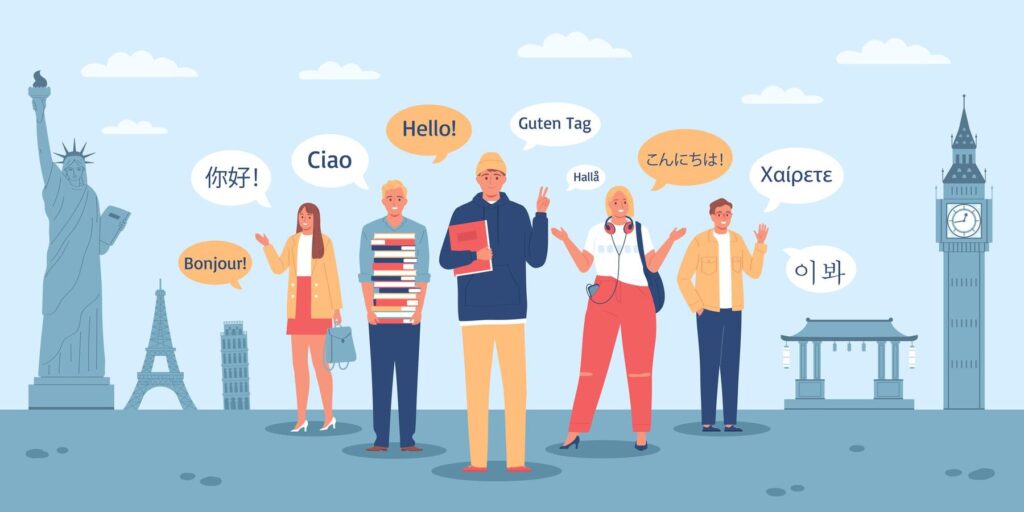Studying abroad offers a unique cultural experience, but it can also bring challenges, especially when it comes to language barriers. Whether you’re attending classes in a foreign language or simply trying to navigate day-to-day life, overcoming language challenges is crucial for making the most of your time abroad. Here are some strategies to help you break down language barriers and improve your communication skills:
- Immerse Yourself in the Language:
The best way to improve your language skills is through immersion. Surround yourself with the language as much as possible—listen to podcasts, watch TV shows or movies in the target language, and engage with local media. The more you expose yourself to the language, the quicker you’ll adapt and understand its nuances. - Practice Speaking with Locals:
Don’t be afraid to make mistakes when speaking with native speakers. Practice is key! Engage in conversations with locals, even if you don’t feel confident at first. Most people will appreciate your effort, and practicing in real-life situations will help you learn faster. - Use Language Learning Apps:
There are plenty of apps designed to improve language skills, such as Duolingo, Babbel, and Memrise. These apps can help you build vocabulary, improve pronunciation, and strengthen grammar. Make language practice a daily habit, even if it’s just for a few minutes a day. - Join Language Exchange Programs:
Many universities offer language exchange programs where students from different countries help each other practice their languages. This is a great way to practice speaking while also helping others learn your native language. Plus, it’s a fun way to meet new people! - Take Language Classes:
If you’re struggling with the language, enrolling in a formal language course can be a game-changer. Many universities offer language programs for international students, focusing on both academic and conversational skills. These courses can build your confidence and provide structured lessons to accelerate your learning. - Use Non-Verbal Communication:
When words fail, non-verbal communication is your best friend. Gestures, facial expressions, and body language can help you communicate more effectively, especially in situations where you don’t have the perfect vocabulary. - Stay Patient and Positive:
Learning a new language takes time, so be patient with yourself. Mistakes are a natural part of the process. Stay positive, embrace challenges, and focus on progress rather than perfection.
Overcoming language barriers can significantly enhance your study abroad experience. By immersing yourself in the language and consistently practicing, you’ll gradually build your confidence and communication skills, making your academic and social experiences more enjoyable.



